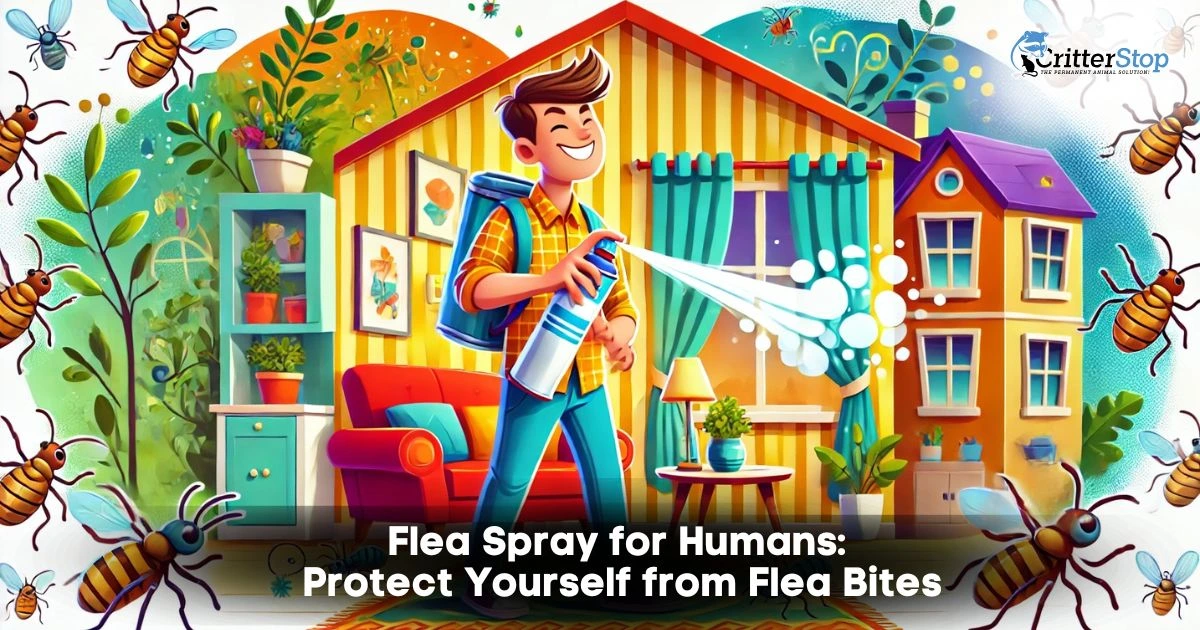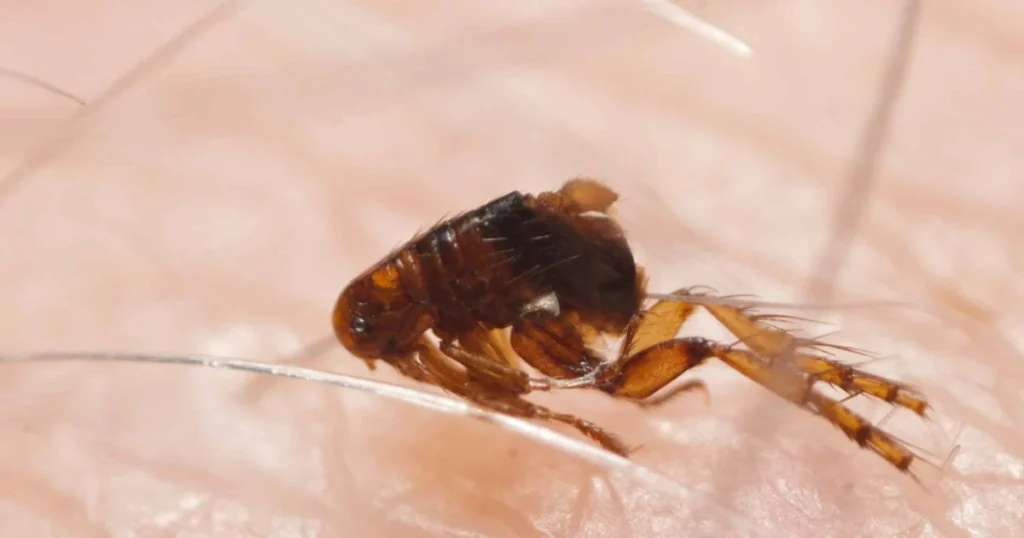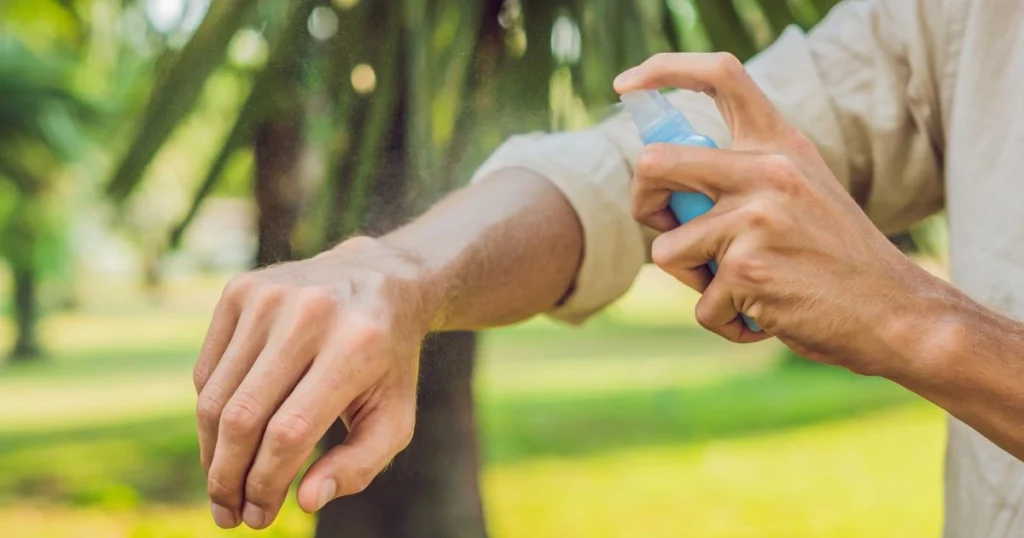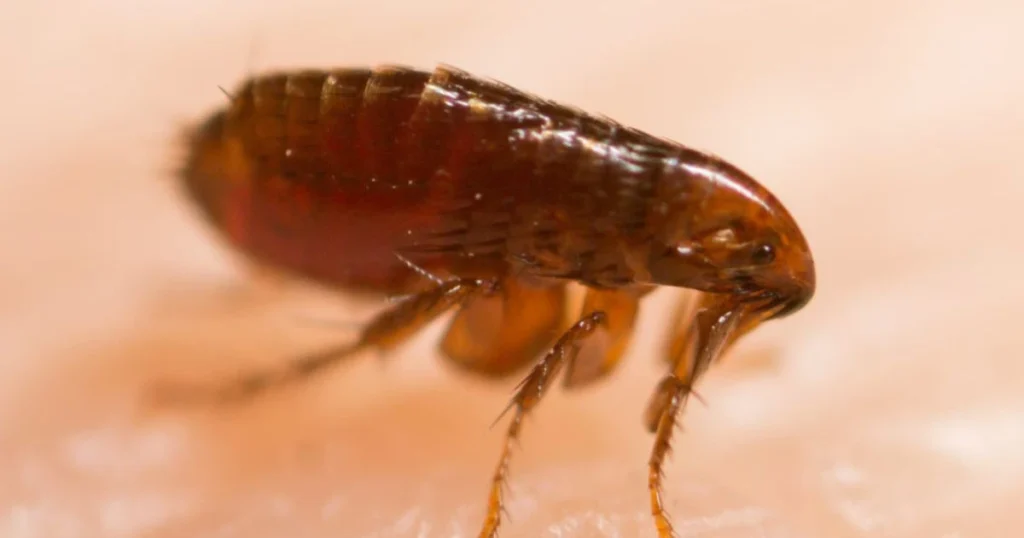
Fleas are small, wingless parasites known for their itchy bites and ability to spread rapidly in homes and outdoors. While they are often associated with pets, humans can also become victims of flea infestations, especially in environments with untreated flea problems.
The discomfort caused by flea bites and the potential for allergic reactions makes finding effective solutions critical. One of the most efficient ways to combat these pests is by using flea spray for humans. This guide explores the best flea sprays, their active ingredients, how to use them safely, and additional measures to protect yourself and your home.

Fleas are not just a problem for pets—they can bite humans, causing red, itchy bumps and potential allergic reactions. Flea sprays for humans are specifically designed to repel or kill fleas on contact, providing relief and protection from infestations. Unlike sprays for pets or homes, these products are formulated to be safe for direct application on human skin or clothing.

Flea sprays for humans work through active ingredients that either repel fleas or kill them upon contact. These ingredients vary by product but typically fall into two categories: natural repellents and chemical insecticides.

When selecting a flea spray, consider your needs, natural vs. chemical ingredients preferences, and any potential skin sensitivities. Below are some of the most effective options:
These sprays are ideal for individuals with sensitive skin or those who prefer eco-friendly solutions. Products containing essential oils like citronella, peppermint, and cedarwood are popular. They are gentle on the skin and provide a fresh, natural scent.
For situations where fleas are already a problem, sprays containing permethrin or pyrethrin can provide powerful results. These sprays are fast-acting and particularly effective for outdoor use or in highly infested areas.
Some sprays are designed to repel multiple pests, including fleas, mosquitoes, and ticks. These sprays often contain DEET or similar ingredients, making them a convenient option for general outdoor protection.
Using flea spray effectively requires careful application to ensure safety and maximize results. Follow these steps for the best outcomes:

While flea sprays are effective, combining them with other preventative measures can provide comprehensive protection against fleas:
Fleas often originate from pets or infested environments. To reduce flea populations in your home, vacuum carpets regularly, wash bedding in hot water, and clean furniture.
If you have pets, ensure they are treated with veterinarian-approved flea control products. Additionally, flea sprays or powders designed for home and yard use should be used to eliminate infestations at the source.
When venturing into areas with high flea activity, such as tall grass or wooded areas, wear long sleeves, pants, and closed shoes to reduce exposed skin.
Place vinegar or lemon water bowls near entry points to deter fleas from entering your home. Essential oil diffusers with flea-repelling scents can also help keep fleas at bay.
Despite their effectiveness, misconceptions about flea sprays persist. Let’s dispel a few of these myths:

Flea sprays for humans are essential for protecting yourself from flea bites and the discomfort they bring. Whether you prefer natural, chemical-based, or multi-purpose repellents, there are options to suit every need.
Combining flea sprays with preventative measures like maintaining a clean home and treating pets can create a comprehensive defense against fleas.
For severe infestations or persistent flea problems, consulting with pest control professionals can provide effective, long-term solutions. Critter Stop is a trusted expert in humane wildlife and pest control.
Critter Stop has a fantastic reputation and online customer reviews because it provides high-quality work and great customer service. Call Critter Stop at (214) 234-2616 today for a free inspection and professional pest removal solutions.
Fleas and ticks can be a persistent nuisance, whether on your skin, in your car, or in your living space. Using specialized flea and tick sprays can help eliminate infestations and protect against bites. Below, we answer some common questions about flea spray for humans, flea spray for cars, and flea and tick sprays, providing valuable insights to keep you and your environment pest-free.
The best flea spray for humans is dermatologically tested and contains effective ingredients like essential oils, DEET, or permethrin. Look for sprays for human use to ensure safety. Popular options include all-natural repellents with citronella or chemical-based sprays for long-lasting protection.
Yes, flea spray for cars is effective in treating infestations within vehicles. These sprays target fleas hiding in carpets, seat crevices, and upholstery. Choose sprays designed for enclosed spaces and vacuum your car thoroughly before application to maximize results.
Flea and tick spray for humans can be used daily if the product instructions allow it. Many natural repellents are safe for frequent use, while chemical sprays may have specific guidelines for reapplication. Always follow the product label and perform a patch test to avoid allergic reactions.
Flea spray for humans creates a barrier on the skin or clothing that repels fleas. Active ingredients like essential oils or DEET deter fleas from landing or biting. Some sprays also include substances that kill fleas on contact, providing immediate relief.
Flea spray for cars should be applied to areas like floor mats, under seats, and within upholstery crevices where fleas and eggs might hide. After spraying, allow proper ventilation and vacuum the car regularly to remove dead fleas and larvae.
Common ingredients in flea and tick spray for humans include essential oils like citronella or peppermint for natural repellency and chemical agents like permethrin or DEET for more robust protection. These ingredients are formulated to be safe for human skin when used as directed.
Yes, flea spray for humans can often be used alongside other repellents, such as clothing treatments or natural remedies, for enhanced protection. However, it’s important to check product labels to ensure compatibility and avoid overuse of chemical ingredients.
Visit our Critter Library and learn more about our furry friends







